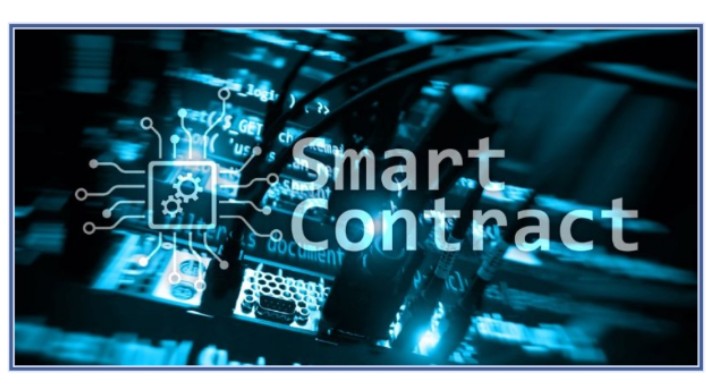Think about a world where algorithms build trust and regulate, and contracts are signed digitally and legally bound. This is where smart contracts come in, which are basically a set of rules coded into blockchains or transaction protocols and act as contracts.
Smart contracts are one of the current disruptive technologies that have revolutionized the new shape of digital transactions, providing a future where agreements are harmonized with operating codes. Smart contracts are digital applications created to execute when certain conditions are met and reside on the blockchain. They operate and implement the provisions of an agreement whenever preset conditions are met.
This article gives the reader insight into the specifics of smart contracts and the advantages of the technology. We also classify smart contracts by their purposes and discuss five typical tools that assist developers in creating and deploying smart contracts for those who may need to hire a smart contract development company.
What are Smart Contracts?
A smart contract is a digital agreement recorded on a blockchain network. It initiates automatic execution once its predefined terms and conditions (T&C) are fulfilled. These terms are typically written in blockchain-specific programming languages, such as Solidity.
Smart contracts can also be regarded as blockchain-based applications that enable each party involved to perform its duties in a transaction. These applications are often known as ‘decentralized applications’ or ‘dapps’.
A vending machine can be linked to smart contracts: Just like entering the proper amount of money and hitting a button prompts the machine to release your chosen item, a smart contract automatically acts when specific conditions are met on the blockchain.
How Do Smart Contracts Work?
A smart contract functions similarly to a traditional contract but uses blockchain technology to enhance efficiency, transparency, and security. The process begins with parties agreeing on terms and conditions, outlining how the smart contract solutions will function based on specific criteria. Participants either construct the contract themselves or work with a smart contract development service provider to code its provisions in a secure computer language, assuring thorough security checks.
Once completed, the contract is released onto the blockchain, where it becomes immutable upon verification and cannot be modified or reversed. The contract then automatically monitors conditions, monitoring preset triggers such as dates or payments. When these conditions are met, the smart contract solutions perform automatically according to programmed directions, such as transferring funds or demonstrating ownership.
Finally, the results of contract completion are recorded on the blockchain, giving a transparent and enduring record of all actions taken.
Benefits of Smart Contracts
Smart contracts offer multiple benefits, including:
Transparency and Consistency
Smart contracts provide a single source of truth, ensuring that all parties consistently have the same data throughout the contract period. This transparency reduces the risk of contract manipulation and improves trust and security. Additionally, replicas of transactions are made and provided to both parties.
Automation Of Process
They eliminate the need for third-party verification and human supervision, allowing for the autonomous execution of agreements. This autonomy hurries up processes and reduces costs associated with intermediaries.
Error Prevention
By automating the contract execution process based on predefined rules, smart contracts reduce the risk of errors that could lead to legal conflicts or financial penalties. Every term and condition is clearly inscribed, which makes sure comprehensive and accurate execution.
Trustless Transactions
Smart contracts operate on decentralized blockchain networks, facilitating transactions without relying on trust in counterparties. This fits with zero-trust security principles, improving neutrality and removing the chance of unnecessary influence.
Immutable Records
Transactional details documented in smart contracts are securely stored on the blockchain, providing built-in backups and ensuring data integrity. This feature facilitates simple retrieval and verification of contract details, even in the event of data loss.
Types of Smart Contracts
Smart contracts can be categorized into three primary types:
Smart Legal Contracts
These contracts replicate traditional legal agreements but are executed and enforced using blockchain technology. They operate on “if-then” conditions and are immutable once deployed. Smart legal contracts enhance transparency and security among parties by automating actions like payments under specific conditions, with non-compliance leading to legal consequences.
Decentralized Autonomous Organizations (DAOs)
DAOs are autonomous entities governed by smart contracts on a blockchain. They operate democratically, with members having voting rights to decide on organizational matters. Unlike traditional organizations with hierarchical structures, DAOs rely on code to manage governance and fund allocation. For instance, VitaDAO employs DAO principles to facilitate community-driven scientific research funding.
Application Logic Contracts (ALCs)
These contracts facilitate interactions between blockchain applications or devices, such as IoT devices. ALCs are not agreements between human participants but between machines or other contracts. They synchronize various blockchain functionalities, enabling seamless integration and interaction across decentralized networks.
Each form of smart contract allows blockchain’s decentralized and unchangeable nature to automate processes, enhance transparency, and redefine traditional contract mechanisms in various domains.
Top 5 Smart Contract Tools
Here are some of the best tools for smart contract developers:
BoringSolidity
Developed by ConsenSys Diligence, BoringSolidity is a collection of libraries designed to streamline and standardize the development of Solidity smart contracts. It focuses on minimizing flaws and enhancing overall code quality.
Chainlink
Chainlink provides blockchain oracles that aggregate real-world data from various sources and securely deliver it to smart contracts. It ensures reliable and tamper-resistant data feeds across multiple blockchains, increasing the efficacy of smart contracts.
Ethcode
Ethcode is a Visual Studio Code extension tailored for Ethereum smart contract development. It offers a beginner-friendly environment for coding, debugging, and unit-testing smart contract code. Ethcode is open-source and integrates seamlessly with Microsoft’s development tools.
Octopus
Octopus is a tool designed for in-depth analysis of smart contract source code. It includes features like symbolic execution, call flow analysis, and control flow analysis to identify and rectify possible contract errors before deployment.
Solidity
Solidity is the primary programming language used to construct smart contracts on the Ethereum blockchain. It features syntax similar to Python, C++, and JavaScript, making it accessible to developers. Solidity applications are compatible with the Ethereum Virtual Machine (EVM) and can operate on other blockchains like Polygon and Avalanche.
Conclusion
Smart contracts are revolutionizing digital trades by embedding trust and openness directly into code execution on blockchain networks. Their ability to automate tasks based on predefined conditions improves efficiency, lowers costs, and minimizes errors, setting a new standard for trustworthiness in contract management.
Despite hurdles such as skill shortages, the growing community of smart contract tools like BoringSolidity, Chainlink, and Solidity is clearing the way for seamless development and deployment. Knowing and harnessing smart contract technologies will be essential as organizations accept these developments. By adding smart contract development services to their strategies, businesses can open new levels of efficiency and security in their operations, bringing in a future where digital deals are permanent and easily performed.


